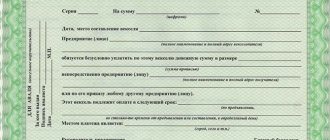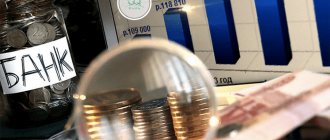Hi all! Since investing in deposit and savings accounts of banks today is unprofitable, the most profitable investments are considered to be investments in real estate.
At the same time, the question of how to invest in real estate abroad becomes particularly relevant, since the cost of real estate in large European cities may be lower than in the Russian capital.
Investing in real estate is a great way to generate stable passive income.
This business will be especially profitable if the property is located abroad.
When investing in foreign real estate, you need to assess the risks present and calculate the minimum possible income.
Existing advantages
There are a huge number of advantages that come with investing in foreign real estate. Moreover, they are often of a purely individual nature. It simply does not make sense to consider them all within the framework of this article. That is why below we will analyze only the most significant advantages of the investment under consideration.
- Current prices for real estate in many foreign countries are significantly lower than in megacities and resort regions of the Russian Federation. At the same time, the potential income that these assets will bring in the future is significantly greater.
- When investing in residential properties abroad, the investor has the opportunity to use it personally. That is, he does not have to constantly rent it out. From time to time, he and his family members can spend a vacation in a place they like. Moreover, the costs of such a vacation will be significantly lower compared to staying in hotels or rental housing.
- If, under certain conditions, you invest in real estate in Spain, Cyprus, Bulgaria, Latvia, Greece, Saint Kitts and Nevis, Great Britain and a number of other countries, the investor can count on receiving their citizenship.
- Investments in foreign real estate perfectly meet the principles of diversification or risk sharing. In other words, an investor who invests capital in several different investment assets has a much lower risk of losing it.
Development and renovation
Investments in new construction (development) and renovation of existing real estate (redevelopment) are the most profitable (from 20% per annum), but require professionalism and experience. A good solution is to hire a professional manager or invest through a fund specially created for such a project.
As an example of redevelopment, I will give a hotel on the coast of Riccione (Rimini, Italy).
The 4 star hotel has 130 rooms and is located on the second line of the Adriatic Sea. The hotel price is 8.5 million euros. The price includes a plot of land on the first line in front of the hotel with permission to build apartments with a total area of 3,500 m2.
A professional manager is ready to take on the hotel reconstruction project and the construction of a new turnkey residential complex. The cost of building a high-end square meter is 2,000 euros, the price of finished housing on the first line is from 10,000 euros. The project has high potential, in Riccione there are only 3 residential complexes on the first line, and prices reach 20,000 euros per m2. In addition, Riccione is in high demand among residents of Bologna, who are used to coming here on vacation.
We also offer profitable development and redevelopment projects in Italy, the USA, Great Britain, Spain (Mallorca and the continent) and other countries.
Existing disadvantages
We think that many people will be surprised by the length of the list with the existing disadvantages of the investments in question. After all, at first glance, buying foreign real estate in some paradise seems to have only advantages. However, in reality everything is not so rosy.
- It is quite difficult for an investor who does not have all the necessary information about the peculiarities of legislation and business customs of a particular state to independently buy real estate there. Moreover, such an attempt implies more than significant risks. In this regard, investments in real estate in another country are almost always carried out through an intermediary. Such companies ask for fairly substantial commissions for their services.
- Investments in foreign real estate are always associated with additional costs. Their size is rarely less than 7–15% of the cost of the purchased object. Most of this amount will go to pay local taxes and fees.
- Investors will always be entirely dependent on the local legal system. We can never rule out the possibility of new laws being adopted that will worsen the situation of property owners who are not residents of a given state. In particular, their income related to renting out an apartment may be subject to additional tax.
- Not a single country in the world is immune from political and economic shocks. They most often lead to the fact that the value of real estate drops significantly. The same thing happens with the demand for apartments and houses from tenants. Let's look at the situation with refugees from Africa and the Middle East as an example. It has already significantly affected the investment attractiveness of real estate in many countries. And if the situation escalates even further, the consequences for investors could be very dire.
Thus, every investor planning to invest money in foreign real estate should soberly assess not only the pros, but also the disadvantages of such investments.
REIT classification
Physical real estate REIT, in which it turns out that real estate objects are purchased, the company rents them out, earning rental payments, and sharing the profitability with its investors. These types of REITs are the vast majority.
Mortgage REITs are companies that hold mortgage-backed securities in their portfolios and earn interest payments on them. There are mixed funds.
REITs are also divided depending on the focus of the real estate. It depends on what exactly the management company has chosen. There are organizations that work exclusively with office properties, some with industrial ones, others, on the contrary, rely on shopping centers, that is, commerce.
Which countries are profitable to invest in?
There are several areas of such investment. Moreover, it is impossible to say in advance which of the options will bring the greatest profit to the investor.
- Investments in real estate in developed countries. This group of countries usually includes Western European and North American countries with developed and stable economies. We are talking about the USA, Canada, Great Britain, Germany, Belgium, Austria, France and some others. The main advantage of such an investment is undoubtedly its high reliability. At the same time, and from the point of view of rental profitability, many of these options are very attractive. For example, we can talk about German real estate. In 2015-2016, it brought high profits to its investors. The same trend is expected to continue for 2017-2018. Naturally, provided that the German authorities solve the problem with refugees.
- Investments in real estate located in resorts. Buying an apartment or house in such a place is not cheap. However, potential rental income is quite high. In this case, you must always take into account the specifics of the country. After all, most resorts are to one degree or another subject to seasonality. In other words, the demand for rental housing at resorts will vary greatly in different months of the year.
- Investments in real estate in developing countries. This is a promising area of investment. However, in order to make money on it, an investor must have a predictive gift. If he is able to foresee the powerful economic development of the country, then the property purchased in it can increase in price very significantly in just a few years. Currently, close attention should be paid to facilities located in the Czech Republic, China and Turkey.
- Investments in real estate in countries with unstable economies. The essence of this method is simple: when the country is in a serious crisis, the investor has the opportunity to buy an apartment or office at a minimal price. After a recession, there is always a recovery, therefore, purchased real estate can seriously increase in value. It should be remembered that the risks here will be extremely high. Examples of such states include Greece or Egypt.
You should choose an investment object wisely. It is not always necessary to strive to follow fashionable investment trends. Often it is unexpected decisions that can bring maximum profit to a real estate investor.
Investing in real estate abroad as a means of generating income
When investing in foreign real estate, it is important to consider the balance of risks and returns.
Risk is the likelihood of loss as a result of some change. The greater the chance that some negative event will occur, the greater the risk and the greater the return, since this is how investors compensate for potential losses.
Profitability can mean absolute annual income, cash flow, operating profit, capitalization rate, value growth, cash-on-cash ROI and IRR. It is important to understand what type of profitability the seller is talking about. For example, as the example below illustrates, the IRR might be 9% while the cap rate is 5.5%.
Example data
| Object cost | 10 million euros |
| Purchase costs | 1 million euros |
| Investments | 5 million euros |
| LTV | 60 % |
| Loan interest | 2,4 % |
| Rental income | 650 thousand euros per year |
| Operating costs | 100 thousand euros per year |
| Cost growth | 2% per year |
Types of return
| Yield type | Definition and calculation method | Example |
| Absolute annual income | How much a rental property brings in per year before operating costs, mortgage payments and taxes | In the above example, an object worth 10 million euros generates an absolute annual income of 650 thousand euros |
| Net operating profit | Absolute annual income minus operating costs | If real estate brings in 650 thousand euros per year, and operating costs are 100 thousand euros per year, then the net operating profit will be equal to 550 thousand euros |
| Net cash flow | Annual profit after operating costs and mortgage payments, before taxes | In the example given, the net cash flow is equal to 300 thousand euros per year (650 thousand (rental income) - 100 thousand (operating costs) - 250 thousand (mortgage payments)) |
| Capitalization rate (cap rate) | The ratio of net operating profit to the cost of the object | If the net operating profit is 550 thousand euros per year, and the property costs 10 million euros, then the capitalization rate is 5.5% per annum |
| Cost growth | Shows how many percent per year (according to forecast) the price of real estate will increase | In the above example, the cost growth is 2% per year |
| Cash-on-cash ROI (Return on Investment, profitability ratio of invested capital) | This indicator is equal to the annual net cash flow divided by invested funds | In the above example, cash-on-cash ROI will be 6% per annum (300 thousand (net cash flow) / 5 million (invested funds)) |
| IRR (Internal Rate of Return) | Calculated based on all cash flows for the entire project period | If the object from the example above generates a cash flow of 300 thousand euros over 10 years, and then the investor sells it for 12 million euros, then the IRR will be 9% per annum |
Low-risk assets in Western markets are sold with an initial rental yield of 3 to 7%. It is not profitable to buy objects with an initial yield of more than 7%: in such projects there is a high probability that a risk will materialize over the horizon of 5–10 years, the costs of eliminating which will be higher than the risk premium at the entrance. In addition, markets with low levels of risk and profitability (usually the centers and prestigious areas of large cities) rise in price faster than those characterized by high initial profitability and high risks.
The optimal return also depends on the investment period. The shorter the term, the higher the initial return can be expected in the range of 3–7%. For example, without taking into account the loan, with a 20-year investment period, the highest total return (taking into account capitalization growth) is achieved with an initial return of 3.8 - 5.8%; and if the investment period is 10 years, then the optimal initial return is 4.5 - 6.5%.
Profitability can be increased through a loan. For example, when purchasing investment property in Germany, you can get a mortgage in the amount of 50% of the value of the property at 1.9 - 2.5% per annum. With a rental yield of 6.5%, the return on invested capital, taking into account the loan, can reach 8–9%.
A foreign mortgage is also beneficial because it can help reduce property taxes abroad: mortgage interest is deducted from the tax base. At the same time, you cannot take out a loan abroad to buy housing in Russia: the property must be located in the same country as the lending bank.
What expenses should you plan for?
Any investment involves not only basic but also additional expenses. In the case of purchasing foreign real estate, the amount of such expenses may turn out to be an unpleasant surprise for the investor. Things to remember:
- expenses for licenses and permits for the acquisition of real estate in a foreign country;
- legal expenses;
- expenses for local taxes, fees and duties;
- payment of utility bills;
- expenses for repairs.
Purchasing foreign real estate is a rather controversial investment instrument. At the same time, thousands of people invest money in this asset.
What is a REIT?
A REIT fund is a tool that allows you to invest in real estate from several hundred dollars. A popular instrument in other countries. The essence of the work of this fund comes down to the construction of construction projects, the purchase of real estate, the search for tenants, etc. At the same time, a REIT is a management company that can own several real estate properties. The shares of this company rotate on the stock exchange, and the investor can buy assets.
On forums and various thematic sites, experts often compare REITs with mutual funds. Of course, there is something similar, but this comparison is not the most correct. We buy shares of a company that has its own financial indicators, multiples, etc., it is important to understand that REIT is a type of shares of a company that operates in the real estate management sector. There is no REIT as such on the Russian market, but there are several investment methods, more on them below.
How to choose a REIT
Choosing the right REITs requires fundamental analysis skills, which are essential for stock selection. When choosing a REIT, you need to look not only at what kind of real estate the investments are made in, but also how effectively the company copes with its management capabilities. The business may bring in normal money, but the profitability of the process will be low for investors. We act according to the classics:
- study financial statements;
- We also look at multipliers;
- autonomy coefficient, amount of borrowed and personal funds;
- what is the financial burden, etc.
In general, we study all documents and statistical data. Careful consideration is required, especially if you intend to invest in a specific REIT
Are there any risks?
The main risks of purchasing primary housing for investment purposes are bankruptcy of the developer, delays in construction and long-term construction. “These risks can be minimized if you carefully select a company and a property, check the title documents, and pay attention to the general contractor who works on the site. Often, delays in construction deadlines are due to the fault of the latter. Also, don’t go after cheap prices. A low price or large discounts may indicate that the developer has financial difficulties,” comments managing partner of VectorStroyFinance Andrey Kolochinsky .
All expenses when buying an apartment in a new building
How to profitably rent out an apartment in a new building?
How to buy REIT
There are several options. It should be noted that REITs are a kind of shares, only highly specialized. Therefore, the purchasing methods are very similar.
- Most REITs are represented in the US market. As a result, you will need to open an account with a foreign broker and then gain access to the list of REIT funds.
- St. Petersburg exchange platform. Some brokerage companies work on it, the exchange allows all companies to purchase the S&P 500 index. As a result, it is possible to purchase REIT funds on the domestic exchange. Regarding the disadvantages of this approach. The St. Petersburg platform does not have the highest liquidity indicators. Also, if the user has signed Form W8B, the tax deduction for dividends in the process of acquisition through a domestic company will be high.
- There are mutual funds on the Russian market that invest in REIT ETFs. Currently there is only one mutual fund operating. The disadvantage of this method is that the client will be charged high commission costs. It is important to take into account here that for a user who does not understand financial analysis, purchasing a mutual fund is simpler according to the algorithm of actions than analyzing and studying a REIT fund.
- Purchasing an ETF fund on a REIT, this design is very complex, but in reality everything is extremely simple. These funds have been popular in the US market for a couple of years. At the same time, this instrument is considered more accessible than mutual funds, since maintenance is cheaper. Regarding the minuses - it will not be possible to purchase through a domestic broker.
Important point
Despite all the attractiveness of apartments, they also have features that must be taken into account if you are purchasing such an object for the purpose of generating income. Firstly, we are talking about utility bills. “Due to the fact that apartments are not classified as housing, utility bills for them are charged as for non-residential premises. And this is 15–20% higher than the amount of utility bills for housing,” notes Anna Sokolova, Marketing Director of Ingrad Group of Companies . Secondly, it is worth remembering about property taxes. The tax rate for hotel apartments is 5 times higher than the housing tax rate, the expert adds.
How to buy an apartment under a transfer agreement?
How to buy a new building: 23 useful articles
Risks when investing in foreign real estate
However, investing in real estate also carries some risks or limitations that may be decisive when choosing an income instrument for a potential investor. These include:
- Fairly high investment threshold
- The need to understand the legislation of the country where real estate is purchased
- Own real estate will require expenses for its maintenance, and in some countries quite a lot
- Real estate is a low liquidity investment. In case of extreme need for funds and a quick sale, you can lose a lot of money
- In the case of an unsuccessfully chosen object, profitability may be negative, and, as mentioned above, it will not be possible to get rid of the purchased one too quickly
- In the event of force majeure conditions, for example, a forced change of political regime, you can lose both access to the investment object and the right of ownership to it
Countries with unattractive investments
When choosing an investment object in the form of “residential meters” abroad, you should avoid advertising and paid recommendations even on the most reputable resources. This is exactly the case when the intermediary will work for himself, misleading his client. Among the unfavorable directions, I will highlight 4, and explain why. Perhaps this will keep you from making a rash investment.
Germany Berlin)
Despite the increase in real estate prices for several years in a row and the high demand for rental housing, this direction does not seem promising due to several reasons. Firstly, house prices here seem to be close to their peak or even inflated, which means there will be no growth in the coming years. Secondly, Germany does not have very friendly legislation for investors. Not only will about 8% of the cost of the property have to be paid when concluding a purchase and sale agreement, but major repairs also fall on the shoulders of the investor.
Dubai
This direction carries serious political risks. In addition, the significant remoteness of the UAE and growing competition from neighboring countries suggest that the attractiveness of this investment is extremely low. In the future, these risks will grow, and the attractiveness of Arab real estate will decrease. This is a reason for investors to think seriously.
Thailand
An overly advertised direction. This is exactly the case when you need to measure 7 times. Apart from the beautiful country and the low cost of living here, there are no other advantages. Already, the downtime of real estate purchased by investors for future rental is extremely high. So, buying an apartment or house in Thailand can only be considered as a place where you can come to relax, and not as a profitable investment.
Cyprus
Another country where realtors encourage you to invest money. They say that it is an attractive tourist destination and there will be no shortage of people wanting to rent housing here. However, the tourist season does not last forever, and the local population will not provide much demand that can bring a good income. The game is not worth the candle, but the return on investment.
Despite the completely opposite views on foreign real estate by financial advisors, this instrument should be included in the investment portfolio of a major investor. Of course, this is not the Grail, but with the right approach to purchasing, real estate can bring good, and most importantly, passive profit. When purchasing real estate, calculate the risks, analyze the opportunities, and such a purchase will never disappoint you.
Author Ganesa K.
A professional investor with 5 years of experience working with various financial instruments, runs his own blog and advises investors. Own effective methods and information support for investments.











